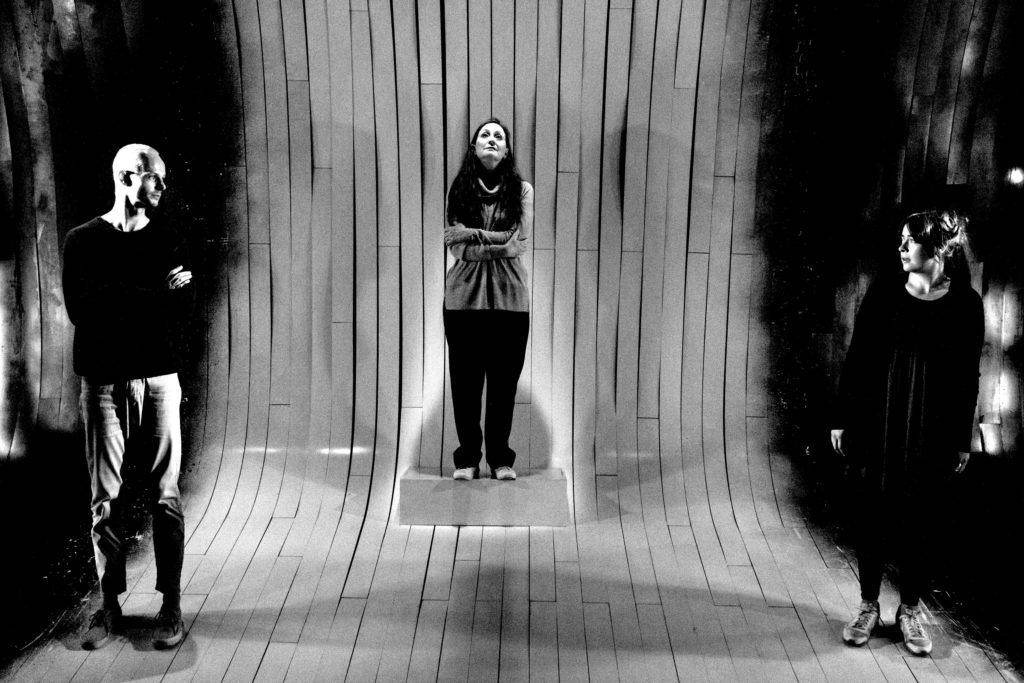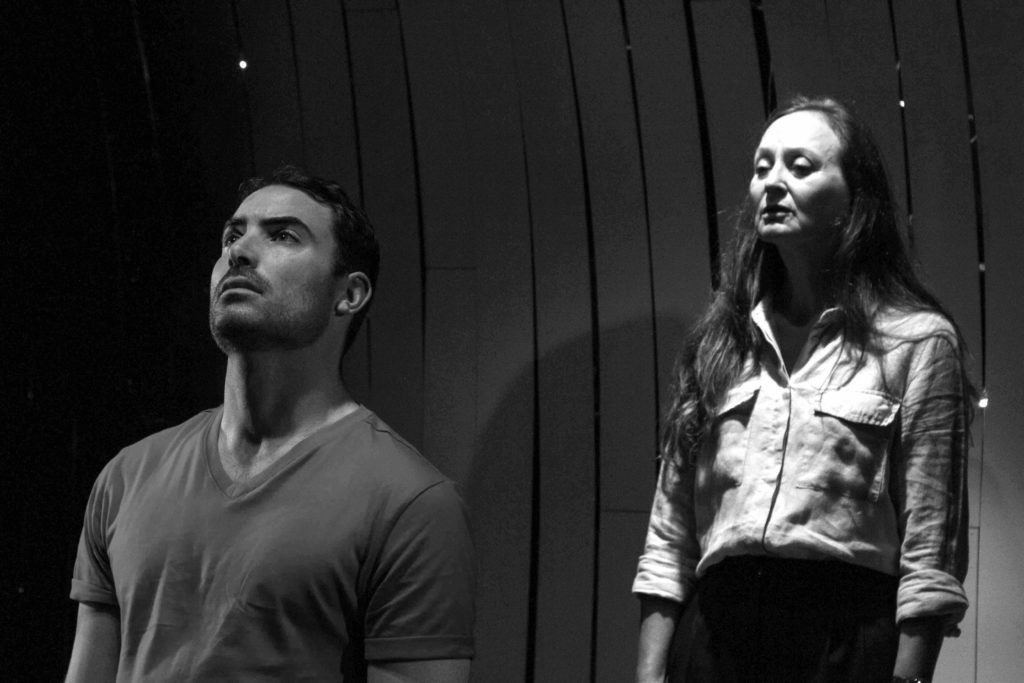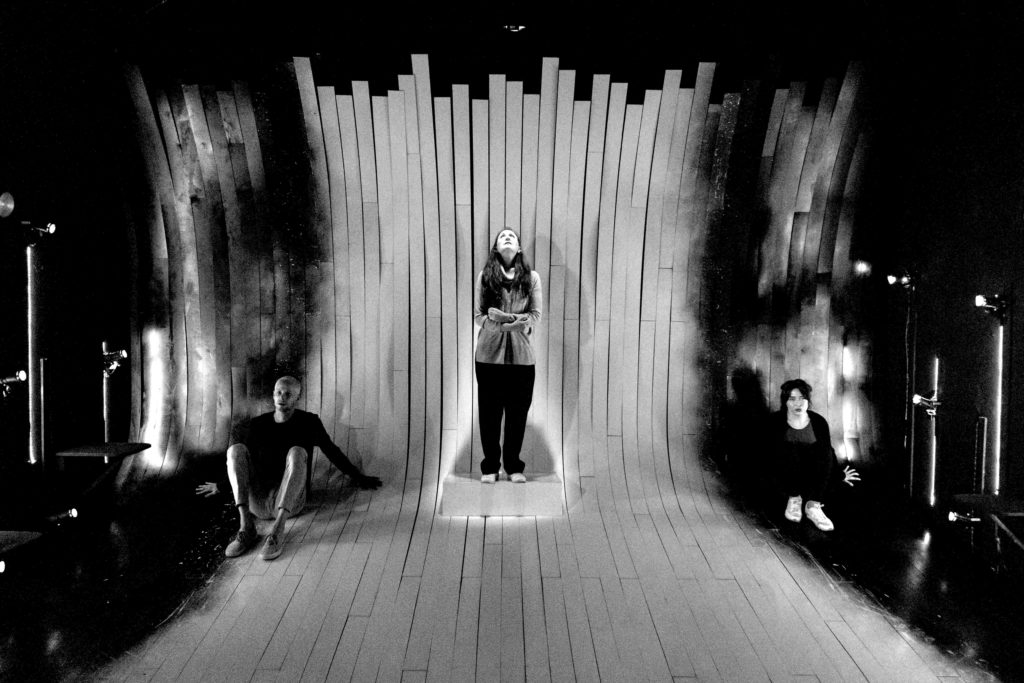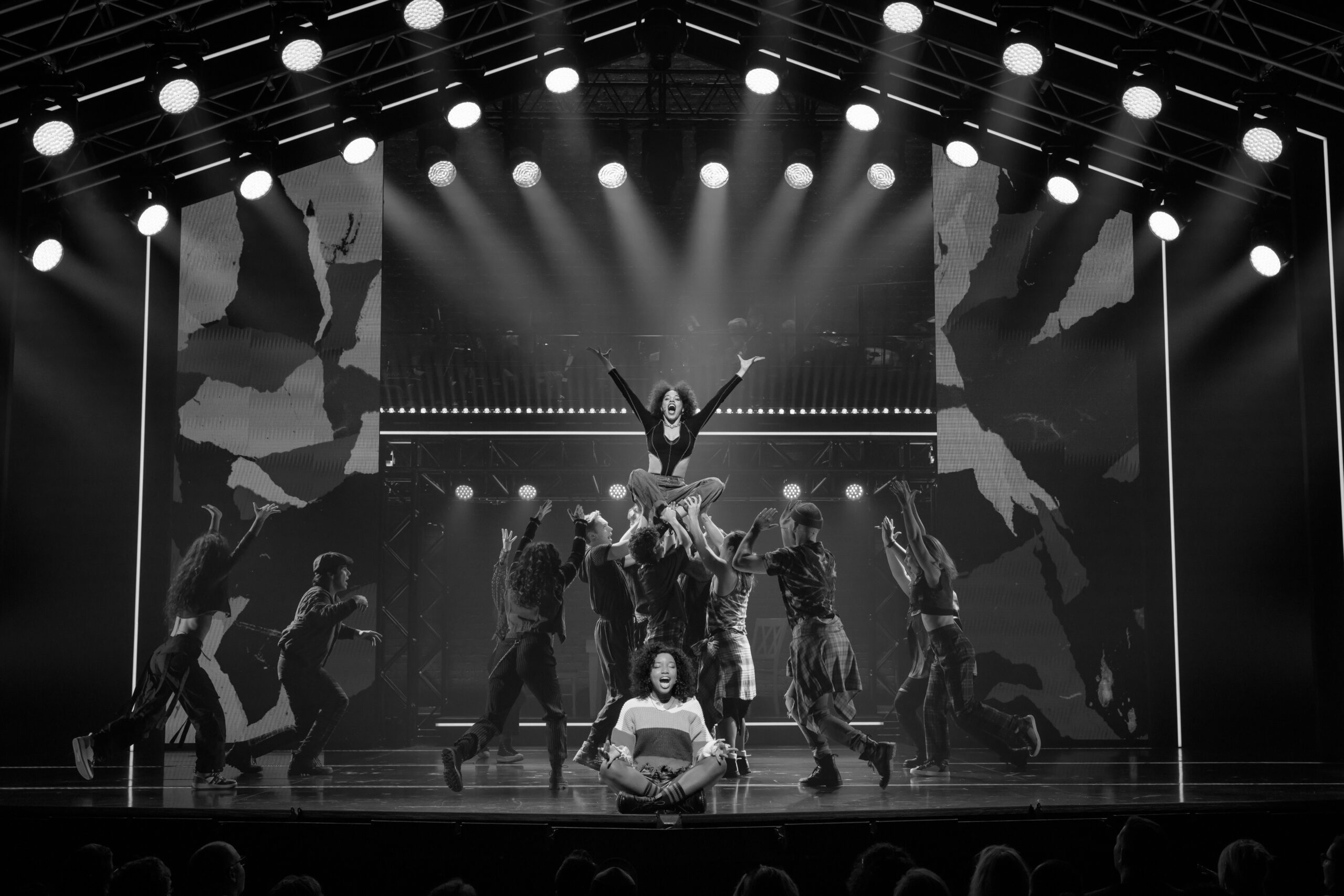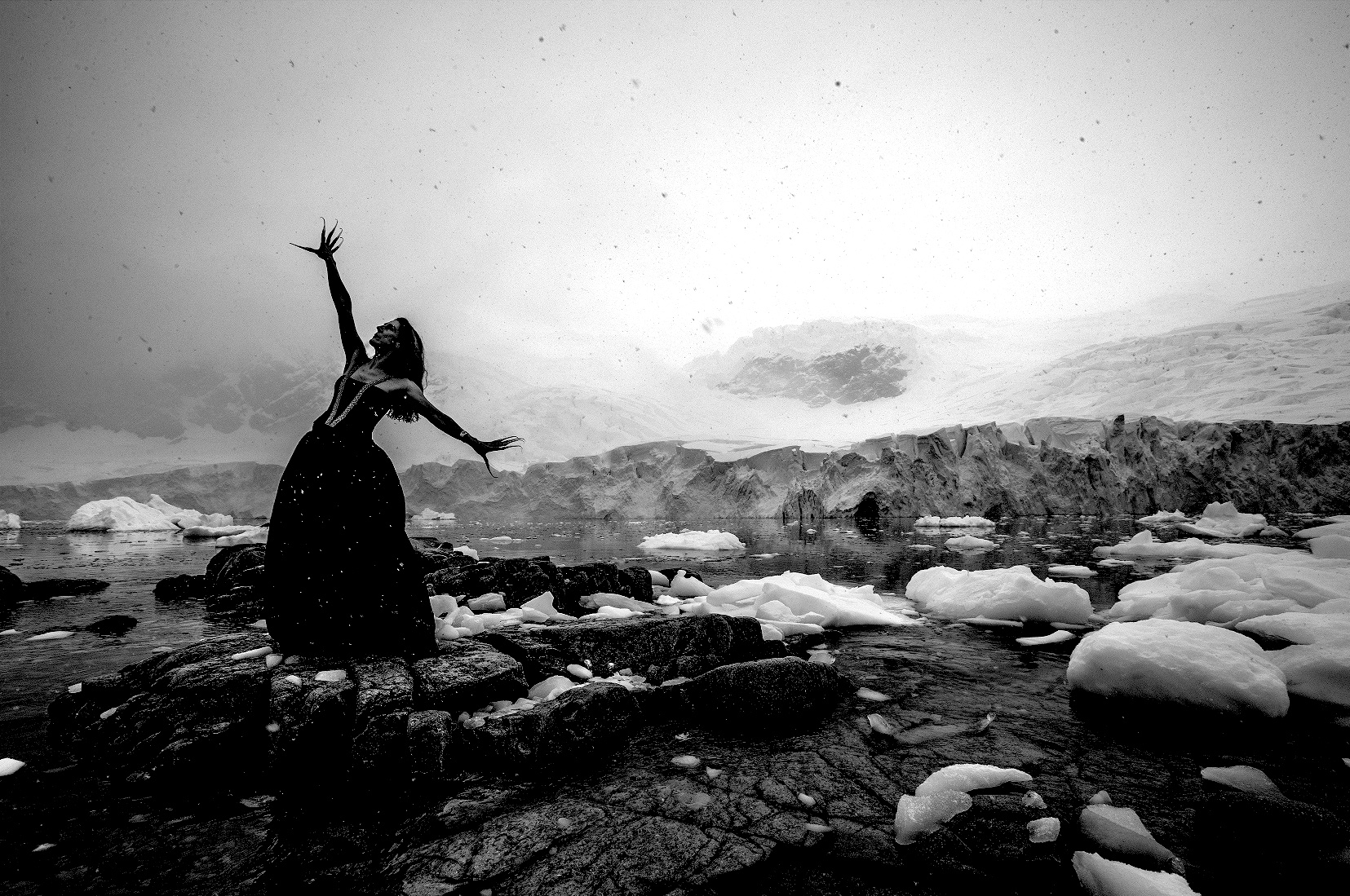COLDER
Colder- a work that at its heart deals with the loss and the decay of our closest relationships; in the midst of a loved one going missing what is left of the emotional landscape in their wake?
Heavy material that plays on memory and provides a dark playground for the cast to idle away amongst- the truths here cut close to the bone, it casts a lens upon what is considered normal and appropriate behavior not just by society, but by the system and family alike. It’s tough going, but whatever difficulty this work, written by Lachlan Philpott, serves up for the ensemble it is increased ten fold for the audience, and for those that cast dispersion on the work itself: it boils down to these people simply not getting it.
The fraught relationship between mother and son, first introduced against the evocative memories of a childhood holiday spent at Disneyland, which then catapults to modern day and, in stark contrast, this is set against the seedy backdrop of Oxford St and Sydney’s gay scene. The polarities allowing for dialogue to emerge that many gay men can relate to, the uncomfortable truths that emerge, as the mother tries with both hands to grasp not just what has transpired in the past, but the blossoming sexuality and promiscuity of her now grown son, send shivers up one’s spine.
The set design is ambitious and does well to cement this swirling narrative, the work of emerging designer, Bethany J Fellows here proves her name one to watch. The ensemble, comprising of 6 performers, work hard with the material at hand, and gives respectively solid performances, there is an undeniable chemistry shared between the cast. Sound design also adds further depth and, is a subtle undertone that prevails throughout.
Of any criticism to offer this work, is that it, at times, teeters upon being too overtly directed for such a tightly wound work, presented in such an intimate setting, the words should be allowed to just simmer away, to sink in, with no additives. And though the direction does give a choreographic edge to the work as a whole, perhaps the creative team could have, with better results, adopted a “less is more” approach.
As we slide further into darkness, it becomes apparent that here, there is not a fairy tale, nor a Hollywood-esque ending in sight, its not going to be wrapped up neatly and tied with a pretty ribbon, there is no resolve, and in this choice alone, Colder stands strong: too often writers are consumed by a need for all feelings and concepts explored to be wrapped up perfectly, a choice, often perplexing in theatre.
Colder is a work not for the faint hearted and, is certainly designed with merit for the more astute and seasoned theatre goer and comes highly recommended.

